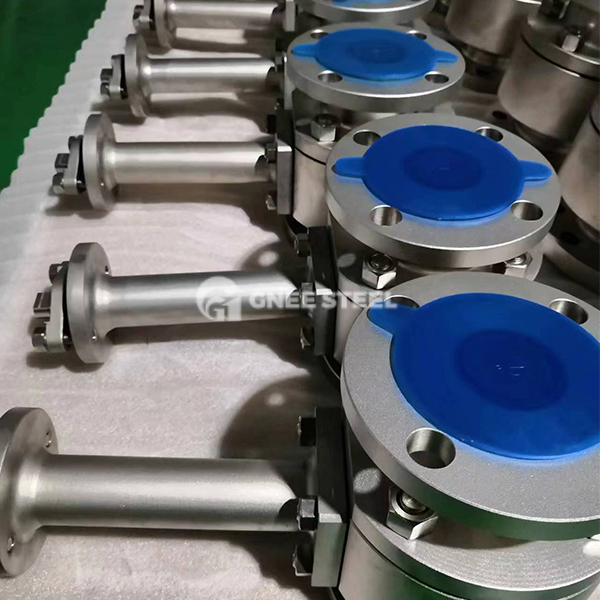Cryogenic Ball Valve Product Overview:
Pressure-bearing components such as the
valve body, ball core, and stem are made of
CF8M cryogenic steel with
deep cryogenic treatment. The
bonnet features an extended neck structure (≥250 mm) to
isolate low temperatures, keeping the
packing away from the cold source, ensuring smooth operation and zero leakage at -196°C. The
electric actuator directly drives the valve
without a servo amplifier, making it suitable for
remote opening/closing and flow control of cryogenic media such as
liquid nitrogen, liquid oxygen, liquid hydrogen, and LNG.
Specification
Ball Valve design according to API6D,BS5351,ASME B16.34
Face to face ASME B16.10,AP6D
End Flanges ASME B16.5/ASME B16.47
Butt welded ends ASME B16.25
Fire Safety API607,API6A
Inspection and test API 598,API6D
Material: CF8M
Size Range: 2″~48″
Pressure Rating: ASME CL, 150, 300, 600

Structural Features:
-
Material & Cryogenic Treatment
- Pressure-bearing materials withstand thermal expansion/contraction from media temperature changes, ensuring no permanent deformation in sealing areas.
- For -100°C or lower, parts undergo deep cryogenic treatment before machining:
- Immersed in liquid nitrogen until -192°C, held for 1-2 hours.
- Naturally returned to room temperature, repeated for 2 cycles.
-
Extended Neck Bonnet
- Protects the stuffing box by keeping it away from extreme cold, maintaining sealing effectiveness.
- Allows insulation material wrapping to minimize cold energy loss.
- Neck length is adjustable based on temperature and insulation thickness.
- Lubricant injection into the stuffing box during operation forms an oil seal layer, reducing differential pressure and enhancing sealing.
-
Hardened Stem Surface
- For temperatures below -100°C, stems undergo chrome plating or nitriding to increase surface hardness and improve seal reliability.
-
Anti-Overpressure Design
- Prevents abnormal pressure buildup from gasification-induced volume expansion of cryogenic media.
- Cavity pressure relief:
- Directly connects cavity to inlet when pressure rises.
- Optional pressure relief valve at inlet for safety.
-
Cryogenic Gaskets
- Maintain reliable sealing and elastic recovery under:
- Room temperature
- Cryogenic conditions
- Thermal cycling




.jpg)
.jpg)





